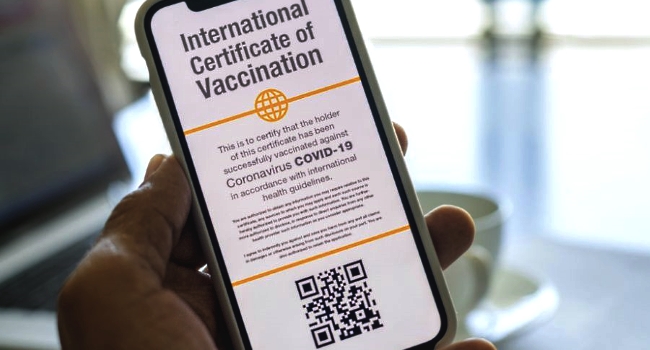Sin Chew Daily
Since the first COVID-19 jab was carried out in the UK on Dec 8, some 50 countries around the world have so far rolled out their respective immunization programs.
As of Feb 4, almost 110 million people across the world had been inoculated, more than the number of positive infections then.
Today, prime minister Tan Sri Muhyiddin Yassin will become the first COVID-19 vaccine recipient in this country to officially kickstart our year-long nationwide vaccination program.
According to the WHO, 75% of the world's vaccines are in the hands of ten countries, and almost 150 countries have yet to start inoculating their nationals, some not even having secured a single dose yet. While some of these countries are slow to act, more are too poor to acquire the vaccines.
By comparison, Malaysia's performance is "above average" even though we were not among the first in the world to secure the vaccines.
Having known the virus for more than a year now, we don't need the government or any expert to tell us that we will not see true economic recovery without first defeating the virus. Further delays will not help things as we may end up not achieving anything—defeating the virus or reviving the economy—if we are too complacent.
Why are 75% of the world's vaccines in the hands of only ten countries? The reason is simple enough: while they may not be stockpiling, these countries wish to bring the virus under control so as to grow their economies once again. The US GDP was slashed by a trillion dollars last year and the situation in the UK was even more appalling, with a 9.9% contraction in its GDP.
The Bank of England said it was the biggest economic slump in over 300 years, and the country therefore could not afford to backslide in its inoculation program.

No doubt there is a huge disparity in the timing of starting vaccination among nations. Leading nations such as Israel, UAE and many Western powers have successfully carried out their inoculation exercises to effectuate herd immunity. However, people in some 50 "low-income" or underdeveloped countries across the world may not even get to see how the vaccines look like. It is hoped that the COVAC will materialize its pledge to ensure fair distribution of vaccines among nations.
While there is a gap of between half a year and one year in the inoculation timing, it is imperative that a "vaccine passport" be introduced soonest.
Simply put, individuals who have completed their jabs will gain free passage to any country without having to undergo the mandatory 10 to 14-day quarantine. This means we will be able to take flights, talk business, travel, or check in a hotel the way we did before the pandemic, an important first step towards a full economic recovery.
Singapore has already approached us on this matter, and health minister Adham Baba has said the government will issue vaccine passports to people completing their vaccination regimen in two ways, either through MySejahtera app or the issuance of a physical vaccine passport.
The vaccine passport will address two major problems: no need for mandatory quarantine for those completing their vaccination regimen, and encourage those against vaccination to receive their jabs.
The Royal Society of the UK said in a recent report that a COVID-19 vaccine passport is feasible, but 12 criteria need to be satisfied in order to deliver an effective vaccine passport. These criteria are just details in vaccine administration, and are reasonable and not hard to be executed.
Many European countries have rolled out their vaccination programs, including Denmark, Sweden, Iceland, Estonia, Czech Republic, Poland and Hungary. It is believed that majority of countries with high vaccination rates will follow suit soon.
UN World Tourism Organization (UNWTO) secretary-general Zurab Pololikashvili called for a vaccine passport when officiating the organization's global tourism crisis committee meeting in Madrid. He said this would become an essential travel document to help restart international tourism.
Sure enough there are people against it. Among the concerns are possible abuse of vaccine passport by unauthorized persons, discrimination against those awaiting their jabs, the issue of data protection, and that it could be unfair to countries with low vaccination rates.
In the meantime, WHO director-general Tedros Adhanom Ghebreyesus has also expressed his concern about mutant variants.
Reasonable as they sound, these excuses are actually unwarranted and insignificant when compared to the prospects of full economic growth. Moreover, while those without vaccine passports may still travel out of the country, they will have to go through the mandatory quarantine.
As mentioned earlier, given the vast disparity in inoculation timing among nations, the global economy will be dead beyond resuscitation if we were to wait for all the 7.7 billion people in this world to get fully immunized, before we restart normal cross-border travels and business operations.
ADVERTISEMENT
ADVERTISEMENT


































